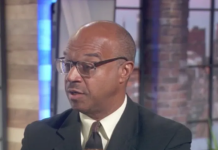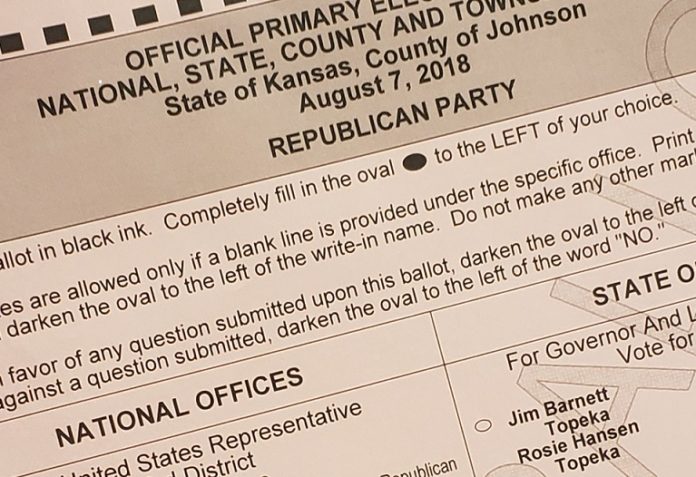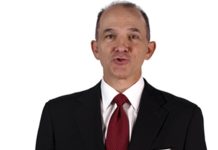(Updated to include information about 2012 federal court case)
A Meade County lawmaker is asking the attorney general to review whether provisional ballot information, including email addresses and phone numbers, is open record.
Republican state Rep. Boyd Orr of Fowler asked the attorney general to review the legality of an open-records request submitted by voting rights activist Davis Hammet.
Hammet is requesting provisional ballot information in all 105 Kansas counties from the 2018 general election. He is asking for the names of voters who cast provisional ballots and why they were rejected.
A copy of a request filed in Ford County showed that he also wants information including home address, email address, phone number, voting districts and “all other disclosable fields of data.”
Hammet said the data is part of the voter file and is open record under state and federal law.
He said some counties have already provided the information, although he conceded officials took some time to evaluate whether it complied with the open-records law.
Orr said in an interview he believes that the law governing provisional ballots could be interpreted different ways.
His letter to the attorney general points to a provision in state law that prohibits “disclosing or exposing the contents of any ballot, whether cast in a regular or provisional manner, or the name of any voter who cast such a ballot.”
While the public may be allowed to inspect voter registration books or other voter lists, “it appears that disclosure of the specific reason(s) as to why an individual voter’s provisional ballot was rejected may be beyond the scope of this provision,” Orr wrote.
However, Orr points out that last January, a Johnson County judge ordered the Johnson County election commissioner to comply with the open-records law and make available a list of the voters who cast provisional ballots in the August 2018 primary.
The American Civil Liberties Union brought the lawsuit on behalf of Hammet after he was denied access to a list of voters who cast provisional ballots and the reasons they were directed to vote provisionally.
Orr wants to know whether the information sought by Hammet is exempt from disclosure under state law or whether the Johnson County judge’s ruling makes the information public.
“It seems to me the statutes are very conflicting,” Orr said in an interview. “I think I can find a statute that says we should, and I think I can find a statute that says we cannot.
“It just seemed to me the best way to solve this issue was to get the attorney general to give us an opinion,” he said. “I am hopeful that his opinion is going to be that we need to fix the statute.”
Orr said he thought Hammet’s request was “pretty broad.” He said county clerks have asked him whether they can provide Hammet with all the information he’s requesting.
“I thought asking for phone numbers and email addresses was kind of pushing the envelope,” Orr said.
Federal law, meanwhile, says access to information about an individual provisional ballot shall be restricted to the person who cast the ballot.
A federal judge found in 2012 that the federal statute protected “access to information about an individual provisional ballot.”
The judge, however, said it did not protect information “about the individual casting the ballot.”
The judge ruled in that case that former state Rep. Ann Mah could have access to the names of the voters who cast provisional ballots.
However, he noted that Mah was not requesting information about ballot content or the reason voters cast a provisional ballot.
Hammet said he is gathering the information to better understand how provisional ballots are handled in Kansas.
He wants to know whether local election officials are following the law and that Kansans aren’t being wrongly disenfranchised.
He also wants to use the data to find and help people who weren’t allowed to vote because they didn’t have identification.
Hammet believes that the Johnson County court case and Ann Mah’s case makes it clear the information can be disclosed.
“I hope the attorney general does the right thing and issues an opinion on behalf of public disclosure and the right of the public to know if elections are being properly conducted,” he said.
“If he does issue the correct opinion, I hope it gives clarity to counties so that they fulfill (what) has already been ruled on by a court.”















